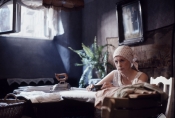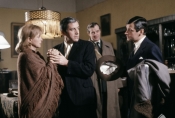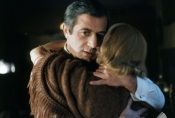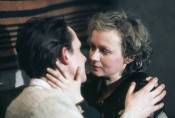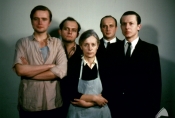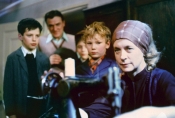THE MOTHER OF KINGS [1982]
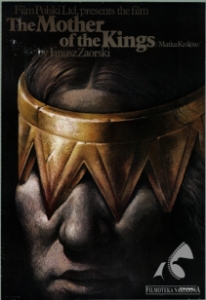
year:
- 1982
release date:
- marzec 1987
runtime:
- 127 min
directed by:
- Janusz Zaorski
written by:
- Janusz Zaorski based on the novel by Kazimierz Brandys
director of photography:
- Edward Kłosiński, Witold Adamek
cast:
- Magda Teresa Wójcik [Łucja Król], Zbigniew Zapasiewicz [Wiktor Lewen], Franciszek Pieczka [Cyga, a coal man], Bogusław Linda [Klemens Król], Michał Juszczakiewicz [Staś Król], Adam Ferency [Zenon Król], Krzysztof Zaleski [Roman Król], Henryk Bista [Grzegorz], Tadeusz Huk [Renard], Jerzy Trela [Hiszpan], Jerzy Stuhr [a Security Service officer], Joanna Szczepkowska [Marta], Andrzej Zaorski [Jagosz], Eugeniusz Kamiński [Zbyszek, a taxi driver], Zbigniew Bielski [Kogut]
edited by:
- Józef Bartczak
music by:
- Przemysław Gintrowski
production design:
- Teresa Barska
produced by:
- Zespół Filmowy „X”, Zespół Filmowy „Rondo”
executive producer:
- Andrzej Smulski
awards:
-
• Don Quixote 1987
• Polish Feature Film Festival Gdynia 1987: Grand Prix Golden Lion, award for best female performance in a leading role for Magda Teresa Wójcik, award for best supporting actress for Joanna Szczepkowska , the Journalists’ Award, the Youth Jury Award
• Award of the Minister of Culture and Arts of the 1st degree 1987 for Magda Teresa Wójcik
• Golden Duck 1988
• Golden Reel 1988
• IFF Berlin (Germany) 1988: Silver Bear
• Award of the Italian Cultural Centre Adelaide Riston 1989 for Magda Teresa Wójcik
• FF Sopot 1989: The Statue of Liberty
About the film
The fate of a simple woman, raising her sons on her own, depicted to the background of the history of Poland in the period between 1933-1956. A vision of the three eras of modern Polish history: the crisis of the thirties, the war and occupation, and the Stalinist era. A drama of a mother fighting for her children, juxtaposed with historical processes, the tragic consequences of which she is unable to comprehend.
It is 1933. After her husband's death, Łucja Król is raising her four children on her own: Klemens, Zenon, Roman and Stanisław. She is a simple woman who makes a living washing laundry and cleaning. She becomes friends with a Communist, Dr. Lewen, a Jew. Commissioner Jagosz, of the invastigating police force, offers to pay Łucja for information on Lewen. Łucja, however, informs her friend that he is of interest to the police. Soon after Lewen is arrested and jailed.
War breaks out. Zenon Król is sent to forced labour to the Reich. Łucja takes care of her other sons and provides shelter to Lewen. He in return gives lessons to Klemens, his girlfriend Marta and their mutual friend, Kogut. One day a German soldier bursts into Łucja’s apartment. He recognises Lewen as a Jew and wants to shoot him. Kogut kills the German. Klemens and Kogut are involved in a joint operation. They are to carry out an assassination in a German café. At the time of the shooting, Kogut is killed and Klemens falls into the hands of the Germans. However, he manages to save his life. After the war, Łucja, along with her sons, side with the new communist reality. During the May 1st parade, she recognises Lewen among the dignitaries and renews their old acquaintance. Party authorities begin to suspect that Klemens had something to do with the death of Kogut, and that he had collaborated with the Germans. Soon after, Klemens is arrested. At the request of Łucja, Dr. Lewen decides to intervene on his behalf. He fails, however, to do anything. He realises that in speaking for Klemens, he may also lose. His wife Marta and brother Stanisław condemn Klemens as an enemy of the people. It is a blow for Łucja. Under torture, Klemens admits to crimes he never committed. Stanisław goes off the rails and is arrested on charges of robbing a kiosk, while Zenon spends his time on pointless ideological disputes with Roman. During the May 1st celebrations, a distraught Łucja attempts in vain to hand Bierut a letter pleading for intervention. After Stalin's death, the political situation changes. Klemens withdraws his testimony, but soon after dies in a prison hunger strike. Lewen, disappointed with his ideals, takes a walk around Warsaw remembering the old days of faith and hope. Łucja Król, unaware of Klemens’s death, awaits his return to no avail.
Joanna Piątek, Leksykon polskich filmów fabularnych, Warszawa 1996
